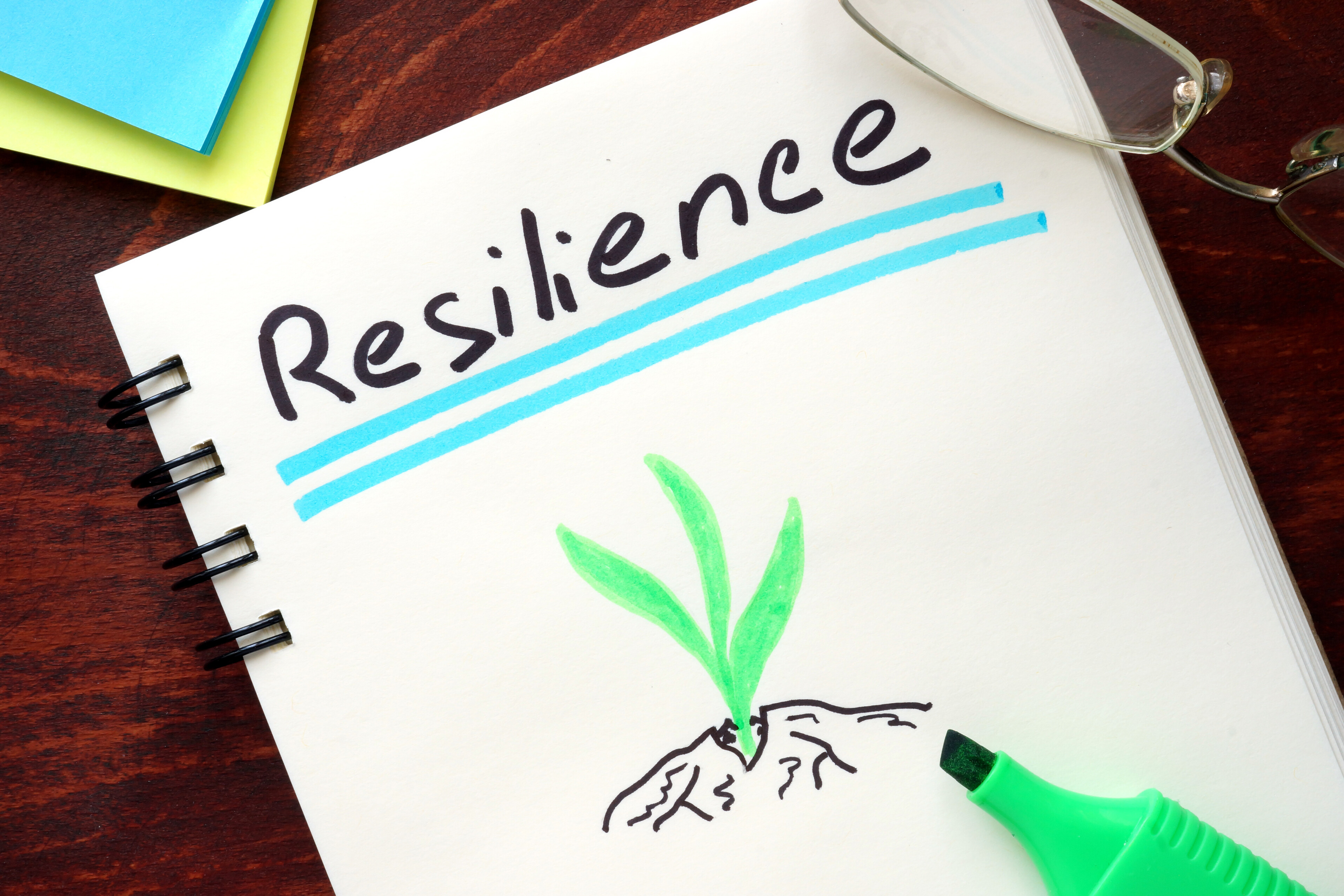Boosting Mental Health Through Resilience

Table of Contents
Understanding Resilience and its Impact on Mental Health
Defining Resilience
Resilience is the ability to adapt successfully to stress, trauma, adversity, tragedy, threats, or significant sources of change. It's not about avoiding hardship, but about possessing the mental and emotional fortitude to cope with challenges and emerge stronger. Resilient individuals demonstrate several key behaviors:
- Adaptability: They adjust to changing circumstances and find creative solutions to problems.
- Problem-solving skills: They actively identify and address challenges rather than avoiding them.
- Optimism: They maintain a positive outlook even in difficult situations.
- Self-efficacy: They believe in their ability to overcome obstacles.
- Strong social support: They have a network of supportive relationships.
Strong resilience is directly linked to a reduced risk of mental health issues such as anxiety and depression. Individuals with high resilience are better equipped to manage stress, cope with setbacks, and maintain their mental well-being in the face of adversity.
The Science of Resilience
Resilience isn't merely a personality trait; it's also rooted in neurological and psychological processes. Neuroplasticity, the brain's ability to reorganize itself by forming new neural connections, plays a vital role. When faced with stress, resilient individuals demonstrate a more adaptive stress response.
- The role of the amygdala and prefrontal cortex: The interplay between these brain regions, responsible for emotional processing and executive function, respectively, influences how we react to stress. Resilient individuals often exhibit better regulation of the amygdala (reducing emotional reactivity) by their prefrontal cortex (enhancing cognitive control).
- The impact of cortisol levels: While cortisol (the stress hormone) is necessary, chronically elevated levels can be detrimental to mental health. Resilient individuals tend to show better regulation of cortisol levels.
- The benefits of mindfulness and meditation: These practices help regulate the stress response, improve emotional regulation, and strengthen neural pathways associated with resilience.
Practical Strategies to Cultivate Resilience
Building Strong Social Connections
Strong social support is a cornerstone of resilience. Connecting with others provides a buffer against stress and promotes emotional well-being.
- Nurturing existing relationships: Invest time and effort in maintaining close relationships with family and friends.
- Building new connections: Join clubs, volunteer, or participate in activities that allow you to meet new people and build relationships.
- Seeking support from friends, family, or therapists: Don't hesitate to reach out to others when you're struggling. A therapist can provide professional guidance and support.
Social interaction reduces feelings of isolation and loneliness, which are major contributors to poor mental health. Strong social connections provide a sense of belonging, support, and shared experience, crucial elements in building resilience.
Developing Healthy Coping Mechanisms
Developing healthy coping mechanisms is essential for managing stress and building resilience. These strategies help regulate emotions and prevent overwhelming stress from negatively impacting mental well-being.
- Mindfulness practices: Mindfulness meditation and other mindfulness techniques can help you become more aware of your thoughts and emotions without judgment.
- Exercise: Regular physical activity releases endorphins, reduces stress hormones, and improves mood.
- Healthy eating habits: A balanced diet provides the nutrients your body and brain need to function optimally.
- Sufficient sleep: Adequate sleep is crucial for physical and mental restoration.
- Engaging in hobbies: Pursuing hobbies and activities you enjoy provides a sense of accomplishment and reduces stress.
- Journaling: Writing down your thoughts and feelings can help you process emotions and gain perspective.
- Seeking professional help: If you're struggling to cope, don't hesitate to seek help from a mental health professional.
Fostering a Growth Mindset
A growth mindset—believing that abilities and intelligence can be developed through dedication and hard work—is crucial for resilience. This perspective allows you to view challenges as opportunities for learning and growth.
- Reframing negative self-talk: Challenge negative thoughts and replace them with more positive and realistic ones.
- Focusing on strengths: Identify your strengths and focus on building upon them.
- Celebrating small wins: Acknowledge and celebrate your accomplishments, no matter how small they may seem.
- Learning from mistakes: View mistakes as opportunities for growth and learning rather than failures.
A growth mindset empowers you to approach challenges with a sense of possibility and perseverance, enhancing your resilience in the face of adversity.
Recognizing and Addressing Mental Health Challenges
Identifying Signs of Distress
Recognizing the signs of mental health distress is crucial for early intervention. If you experience several of these symptoms consistently, seeking professional help is important:
- Persistent sadness or low mood: Feeling down or hopeless for extended periods.
- Loss of interest in activities: A significant decrease in enjoyment of previously pleasurable activities.
- Changes in sleep or appetite: Insomnia, oversleeping, significant weight loss or gain.
- Feelings of hopelessness or worthlessness: Negative thoughts about oneself and the future.
- Irritability or increased anger: Significant changes in mood and temperament.
- Difficulty concentrating: Trouble focusing or making decisions.
Seeking Professional Help
Seeking professional help is a sign of strength, not weakness. Early intervention is key to managing mental health challenges effectively.
- Finding a therapist or counselor: Your primary care physician can provide referrals to mental health professionals.
- Utilizing online resources: Many online resources offer information, support, and self-help tools.
- Accessing crisis hotlines: If you're experiencing a mental health crisis, contact a crisis hotline immediately.
Conclusion
Resilience is not merely desirable; it's essential for navigating life's inevitable challenges and maintaining strong mental health. By understanding the science behind resilience and implementing the practical strategies discussed in this article—building strong social connections, developing healthy coping mechanisms, fostering a growth mindset, and seeking professional help when needed—you can significantly strengthen your ability to overcome adversity. Start building your resilience today and invest in your mental well-being. Strengthen your resilience for better mental health; boost your mental well-being through resilience; invest in your resilience and improve your mental health. For additional support and resources, please visit [insert links to relevant mental health organizations and helplines here].

Featured Posts
-
 Is A Japanese Mangas Disaster Prediction Causing Travel Cancellations
May 20, 2025
Is A Japanese Mangas Disaster Prediction Causing Travel Cancellations
May 20, 2025 -
 Abidjan Accueille L Ivoire Tech Forum 2025 Une Plateforme Pour La Transformation Digitale
May 20, 2025
Abidjan Accueille L Ivoire Tech Forum 2025 Une Plateforme Pour La Transformation Digitale
May 20, 2025 -
 Giakoymakis Odigei Tin Kroyz Azoyl Ston Teliko Toy Champions League
May 20, 2025
Giakoymakis Odigei Tin Kroyz Azoyl Ston Teliko Toy Champions League
May 20, 2025 -
 Crisis En La Familia Schumacher Mick Se Separa Y Busca El Amor En App De Citas
May 20, 2025
Crisis En La Familia Schumacher Mick Se Separa Y Busca El Amor En App De Citas
May 20, 2025 -
 Auto Dealers Renew Fight Against Electric Vehicle Regulations
May 20, 2025
Auto Dealers Renew Fight Against Electric Vehicle Regulations
May 20, 2025
